【CONTENTS】ptarmigan Observation Rules
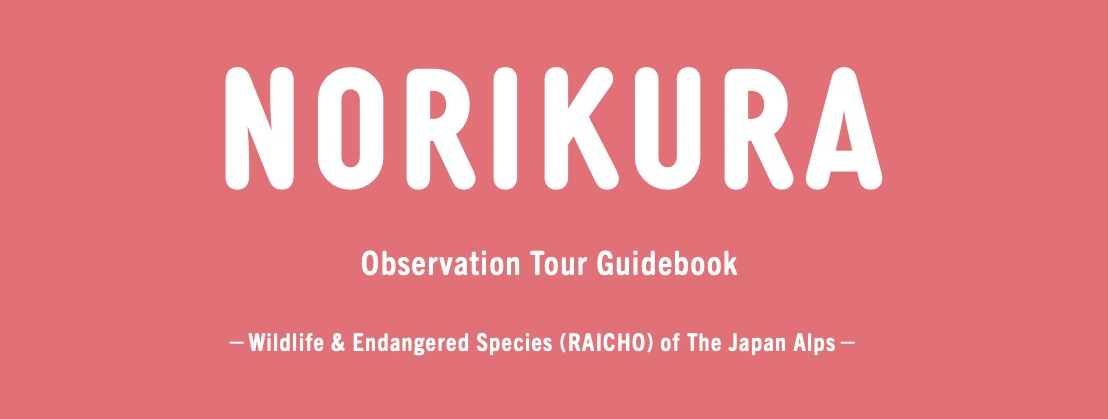
Think of Rock Ptarmigan first – Behave in a way that does not impact the animals
We want to be able to visit the majestic natural scenery of the Norikura Mountains and always leave behind an environment where we can live in a world with Rock Ptarmigan. In order to ensure that place always exists, ropes and wooden paths along the walking route for humans have been put in place. Please make sure that you walk along designated paths, and do not enter the areas where Rock Ptarmigan and alpine plants make their homes further beyond those points. You may find a Rock Ptarmigan family walking along a path or bathing themselves in sand. If we make any sudden movements or loud sounds, it will startle the Rock Ptarmigan. Let’s make sure to observe them quietly. The paths are also right in the middle of the Rock Ptarmigan’s habitation area. If you find a Rock Ptarmigan, please maintain your distance and try not to disturb them as they pass or block the direction they are headed. In particular, disturbing a mother during egg-laying season or a chick during brooding season can be fatal to the eggs or chicks. Most Rock Ptarmigan are not afraid of humans, but if proper etiquette is not followed while observing or photographing them, then they will eventually learn to fear humans. Rock Ptarmigan are nationally designated special natural monuments. They are protected under the Law for the Protection of Cultural Properties and the Act on Conservation of Endangered Species of Wild Fauna and Flora. Catching or touching them is against the law.
Avoiding encounters with Japanese Black Bears
You must not forget that you are entering an alpine ecology. The area is also inhabited by Japanese black bears and Japanese serows. The Norikura Mountains are home to a large number of Japanese black bears and there are constantly sightings being posted. If a bear finds a human, it will not suddenly attack. Walk with a bell and let the bears know you are coming to avoid an encounter. Please take extra care when on your own in places or at times with few people around.
Alpine plants sustain the Rock Ptarmigan
Alpine plants are unique plants that can only grow in alpine environments. They are food and hiding places for Rock Ptarmigan and provide materials for them to build their nests. Alpine plants and the insects that they support are food for the Rock Ptarmigan. Enjoy the charming and beautiful flowers found here within this natural environment. Photos are the only thing that can be taken here.

Rock Ptarmigan walk along the mountain trail. Let’s stop and observe them quietly.
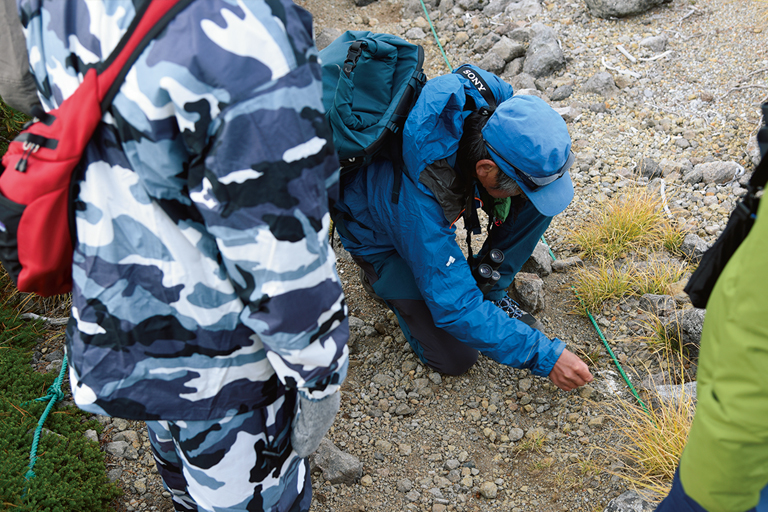
A guide discovers traces of a Rock Ptarmigan or other animal. They offer valuable experiences.
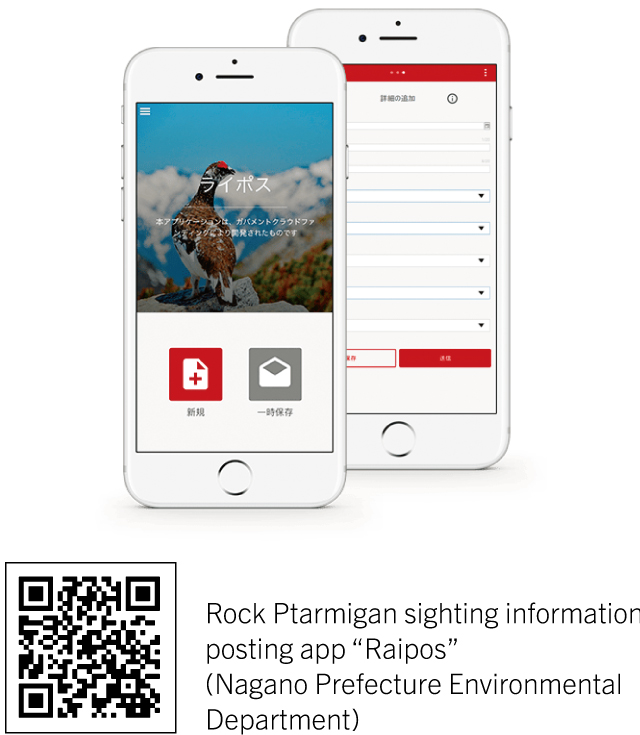
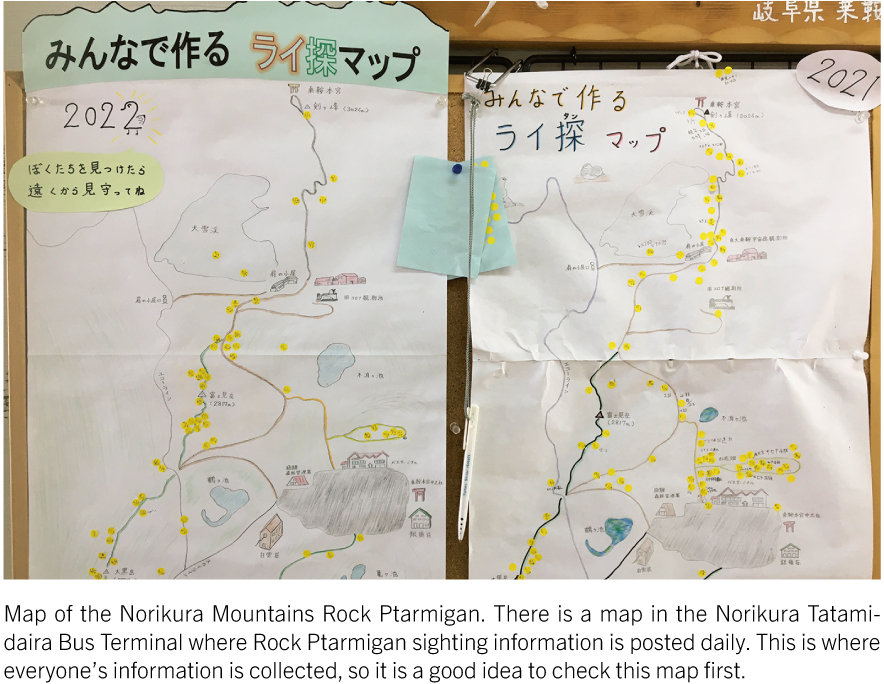
Check the weather before your departure
The weather and climate in the alpine zone can change easily, so it is important to check before going. There are many trails with poor footing and steep trails. Avoid using these trails when the weather is uncertain. There are a few mountain huts and shelters along the climbing trails on the Norikura Mountains, but they are limited. Make yourself aware of their locations before you go to prepare for worst case situations.
Clean shoes and clothingClean shoes and clothing
The alpine zone is a completely different environment than the world at the base of the mountains where we live. It has a very unique ecology that cannot be found anywhere else. You have to be careful to not bring any dirt in on the soles of your shoes or clothing. It will pollute the alpine environment. In particular, if you bring in the seeds of plants from the base of the mountain on the soles of your shoes without realizing it, it can have a negative impact on alpine vegetation.
Trash and toilets too
Please make sure to take any trash that you bring to the mountain back home with you. Be careful that it doesn’t get carried away by the wind. If we drop food and leave it or throw it away on the top of the mountain, it may have a negative impact on the animals who eat it. It may also lead to attracting animals who are natural enemies of the Rock Ptarmigan. Make sure to use the facilities before you leave and in the designated location. Also, be careful of polluting with bacteria and viruses that cannot be seen.
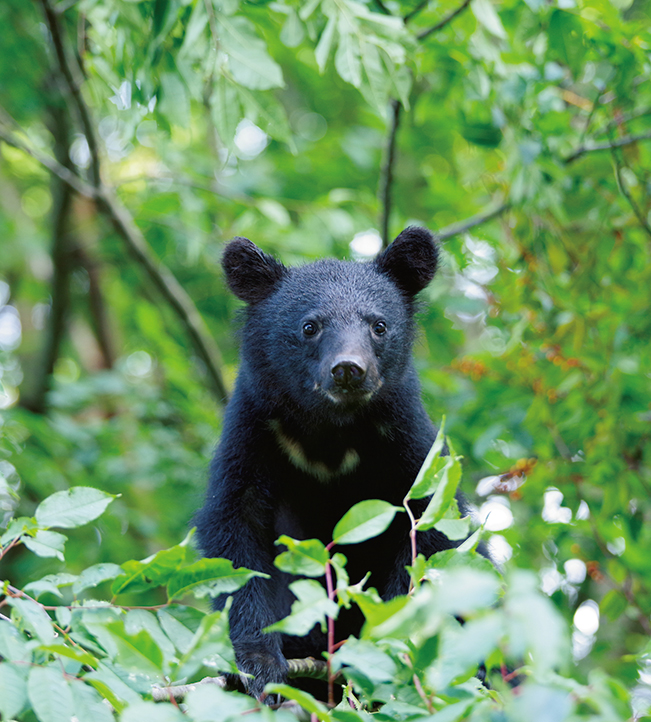
The Norikura Mountains are a habitat for the Asian Black Bear.
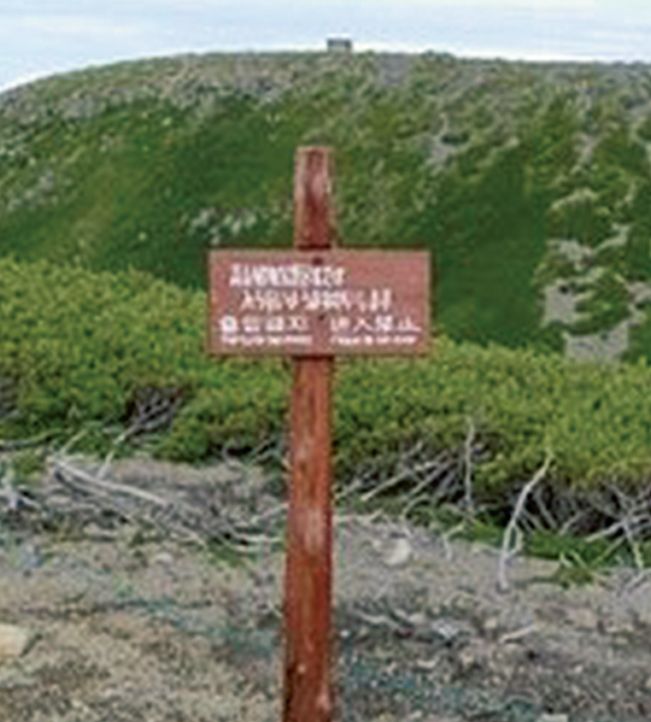
Sign stating that picking alpine plants is prohibited.
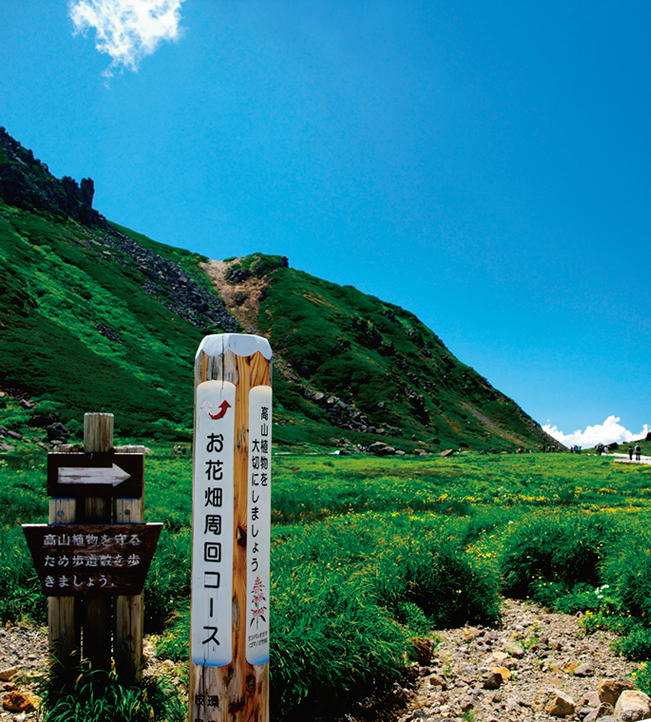
Flower field sign. Take your time observing them.
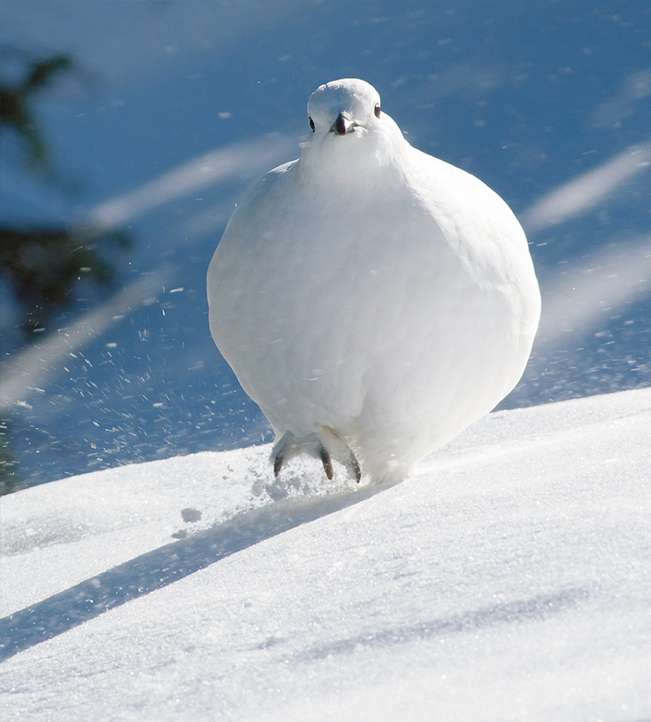
Rock Ptarmigan in winter. (photo © KOUHEItakahashi)